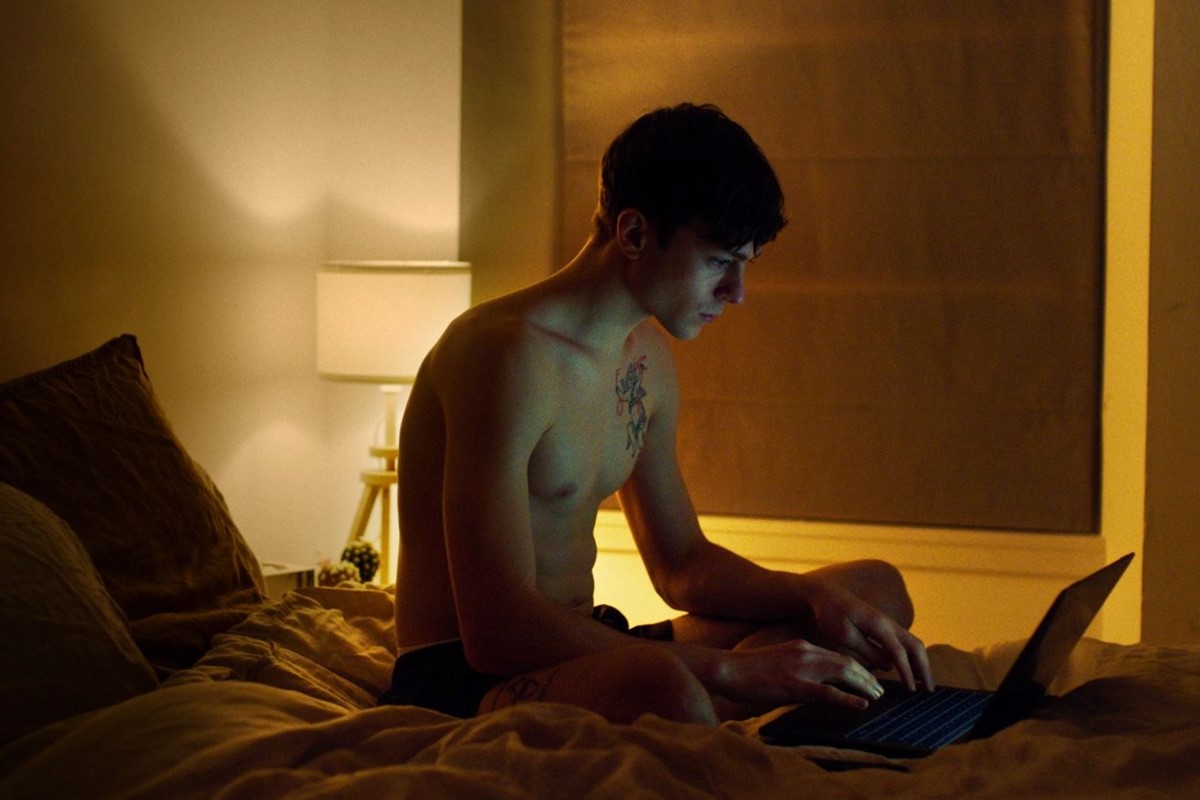
Rewrite
Mikko Mäkelä opens up about the films that influenced his provocative drama that sees an aspiring author turn to sex work for creative inspiration
Sex work has long fascinated filmmakers – Sean Baker’s Anora, a genre-blending romp about a gutsy exotic dancer, just swept the board at the Oscars. But Sebastian, the provocative second feature from Finnish-British director Mikko Mäkelä, manages to find a fresh perspective. Rising star Ruaridh Mollica plays Max Williamson, an aspiring writer who works for an arts magazine by day and as a male escort called ‘Sebastian’ by night. Max clearly enjoys his sex work and isn’t just in it for the money. His nocturnal encounters with affluent older men are also the source material for his debut novel, which has attracted interest from a well-connected publisher (Leanne Best), albeit without an advance.
Mäkelä, who previously made 2017’s tender queer romance A Moment in the Reeds, says he hatched Sebastian when he moved to London after completing his university degree in Nottingham. “It kind of dawned on me just how many young gay men were involved in sex work of some description – and this was before OnlyFans,” Mäkelä says, speaking over Zoom from a Paris hotel room. “A lot of recent graduates and young creatives seemed to see it as just another option in the city’s gig economy. So often, it’s portrayed [on screen] as a last resort, but I wanted to explore the way the internet and apps like Grindr have made the threshold for getting into sex work so much lower.”
At the same time, Mäkelä was keen to “make a film about the creative process”, particularly the “relationship between an artist’s life and their work”. Though Max writes non-judgmentally about sex work in his novel, he lets his friends and publisher believe that he is drawing from interviews with anonymous sources, not from his own lived experience. None of his clients, even a gentle academic (Jonathan Hyde) who wants to foster a deeper connection, knows that they are effectively becoming supporting characters. “I was very interested in the ethics of storytelling,” Mäkelä says. “When you let a writer into your life, are you automatically opening yourself up to be used [as source material], even if you do so unwittingly?”
Here, Mikko Mäkelä explains how five quite different films inspired Sebastian’s exploration of sex work, the mechanics of creativity, and the nocturnal throb of a metropolis like London.

“I saw this film for the first time when I was writing Sebastian and it made such an impact that it’s actually cited [in my screenplay]. Sandrine Bonnaire plays a young woman who seems to be expressing and looking for herself in sexual encounters with various men. She’s a fairly closed-off character, but she goes on a similar journey of self-discovery to the one Max makes in Sebastian. I also love the rawness with which Pialat stages and shoots his scenes. He’s a very inspirational filmmaker to me on many levels.”
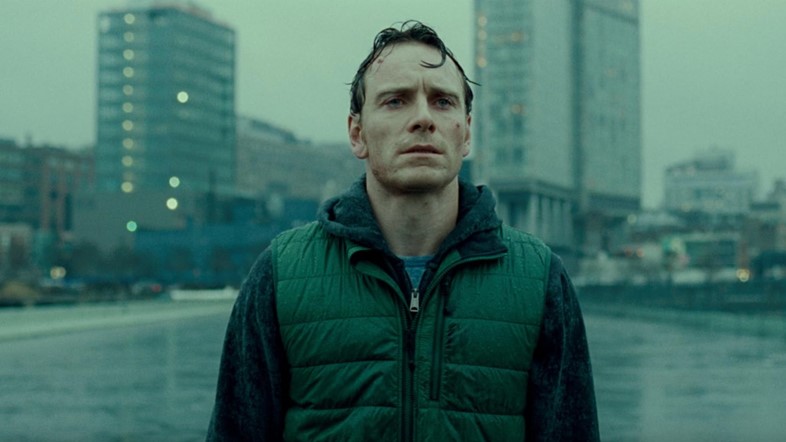
“This film has operatic highs and wonderful performances. And I love the way that New York sort of exists as a character in the nocturnal journey that Michael Fassbender’s character goes on. That was definitely something I looked to when I was thinking about how to portray London in my film. But I do find Shame’s ending to be a little problematic in the way it seems to depict homosexuality as the lowest of the low for Fassbender’s sex addict. I also think it problematises sex in a way that Sebastian doesn’t; I hope I’ve made a very sex-positive film.”
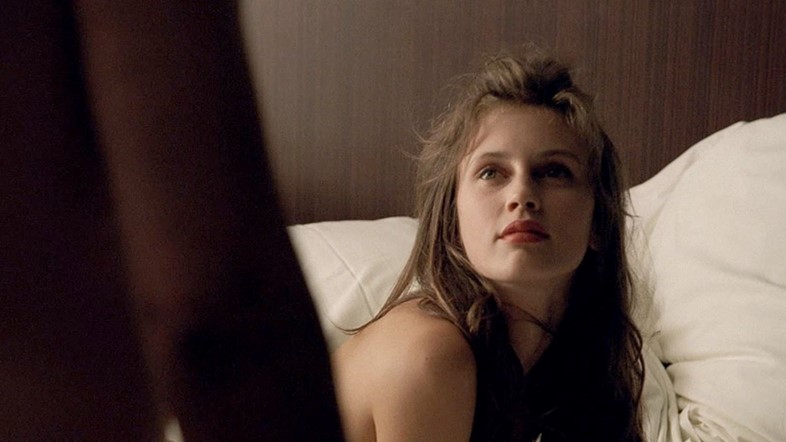
“I found this film very inspirational because it’s about someone who is doing sex work but not because they need to. It’s also a really intriguing coming-of-age story. Marine Vacth plays a teenager from a fairly bourgeois family who enters into sex work for self-discovery and adventure, but also as an act of rebellion against the values she was brought up with. I find François Ozon as a filmmaker really inspiring generally for his quite frank treatment of sexuality, but also because he brings a really enjoyable melodrama to all his films.”
Read our guide to the films of François Ozon here.
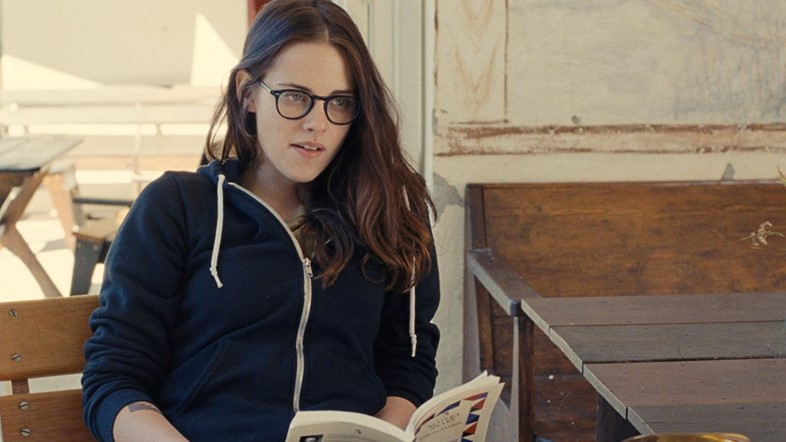
“This film treats art-making in such an intelligent and unapologetically meta way. It’s about a legendary actress who’s played by a legendary actress – Juliette Binoche – and her relationship with her assistant, played by Kristen Stewart. Together they’re rehearsing for a fictional play that’s based on Fassbinder’s [1972 film] The Bitter Tears of Petra von Kant. Then at the end, Brady Corbet has a cameo as the director of the film that Binoche’s character is about to make. I love all those really delicious meta Easter eggs, and I really wanted Sebastian to exist in a similar space in terms of its reflection on creativity.”
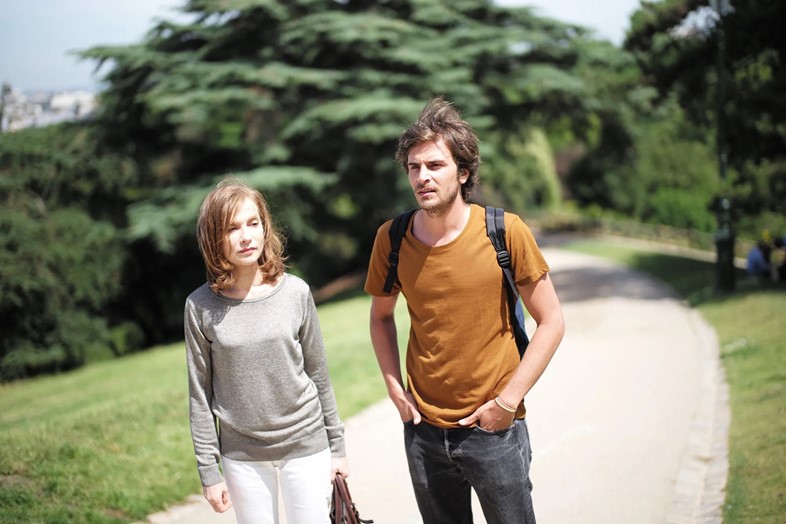
“This film is such a beautiful portrait of a woman – a philosophy professor played by Isabelle Huppert – who is at a transitional point in her life. I really love the ease and naturalism with which it depicts a very intellectual milieu. Hansen-Løve includes all these conversations about ideas in a way that doesn’t feel pretentious or in any way jarring. That naturalism was something I was trying to achieve in Sebastian, in the scenes where Max is talking about his book or the act of writing generally.”
Sebastian is released in UK cinemas on April 4.
in HTML format, including tags, to make it appealing and easy to read for Japanese-speaking readers aged 20 to 40 interested in fashion. Organize the content with appropriate headings and subheadings (h1, h2, h3, h4, h5, h6), translating all text, including headings, into Japanese. Retain any existing
tags from
Mikko Mäkelä opens up about the films that influenced his provocative drama that sees an aspiring author turn to sex work for creative inspiration
Sex work has long fascinated filmmakers – Sean Baker’s Anora, a genre-blending romp about a gutsy exotic dancer, just swept the board at the Oscars. But Sebastian, the provocative second feature from Finnish-British director Mikko Mäkelä, manages to find a fresh perspective. Rising star Ruaridh Mollica plays Max Williamson, an aspiring writer who works for an arts magazine by day and as a male escort called ‘Sebastian’ by night. Max clearly enjoys his sex work and isn’t just in it for the money. His nocturnal encounters with affluent older men are also the source material for his debut novel, which has attracted interest from a well-connected publisher (Leanne Best), albeit without an advance.
Mäkelä, who previously made 2017’s tender queer romance A Moment in the Reeds, says he hatched Sebastian when he moved to London after completing his university degree in Nottingham. “It kind of dawned on me just how many young gay men were involved in sex work of some description – and this was before OnlyFans,” Mäkelä says, speaking over Zoom from a Paris hotel room. “A lot of recent graduates and young creatives seemed to see it as just another option in the city’s gig economy. So often, it’s portrayed [on screen] as a last resort, but I wanted to explore the way the internet and apps like Grindr have made the threshold for getting into sex work so much lower.”
At the same time, Mäkelä was keen to “make a film about the creative process”, particularly the “relationship between an artist’s life and their work”. Though Max writes non-judgmentally about sex work in his novel, he lets his friends and publisher believe that he is drawing from interviews with anonymous sources, not from his own lived experience. None of his clients, even a gentle academic (Jonathan Hyde) who wants to foster a deeper connection, knows that they are effectively becoming supporting characters. “I was very interested in the ethics of storytelling,” Mäkelä says. “When you let a writer into your life, are you automatically opening yourself up to be used [as source material], even if you do so unwittingly?”
Here, Mikko Mäkelä explains how five quite different films inspired Sebastian’s exploration of sex work, the mechanics of creativity, and the nocturnal throb of a metropolis like London.

“I saw this film for the first time when I was writing Sebastian and it made such an impact that it’s actually cited [in my screenplay]. Sandrine Bonnaire plays a young woman who seems to be expressing and looking for herself in sexual encounters with various men. She’s a fairly closed-off character, but she goes on a similar journey of self-discovery to the one Max makes in Sebastian. I also love the rawness with which Pialat stages and shoots his scenes. He’s a very inspirational filmmaker to me on many levels.”

“This film has operatic highs and wonderful performances. And I love the way that New York sort of exists as a character in the nocturnal journey that Michael Fassbender’s character goes on. That was definitely something I looked to when I was thinking about how to portray London in my film. But I do find Shame’s ending to be a little problematic in the way it seems to depict homosexuality as the lowest of the low for Fassbender’s sex addict. I also think it problematises sex in a way that Sebastian doesn’t; I hope I’ve made a very sex-positive film.”

“I found this film very inspirational because it’s about someone who is doing sex work but not because they need to. It’s also a really intriguing coming-of-age story. Marine Vacth plays a teenager from a fairly bourgeois family who enters into sex work for self-discovery and adventure, but also as an act of rebellion against the values she was brought up with. I find François Ozon as a filmmaker really inspiring generally for his quite frank treatment of sexuality, but also because he brings a really enjoyable melodrama to all his films.”
Read our guide to the films of François Ozon here.

“This film treats art-making in such an intelligent and unapologetically meta way. It’s about a legendary actress who’s played by a legendary actress – Juliette Binoche – and her relationship with her assistant, played by Kristen Stewart. Together they’re rehearsing for a fictional play that’s based on Fassbinder’s [1972 film] The Bitter Tears of Petra von Kant. Then at the end, Brady Corbet has a cameo as the director of the film that Binoche’s character is about to make. I love all those really delicious meta Easter eggs, and I really wanted Sebastian to exist in a similar space in terms of its reflection on creativity.”

“This film is such a beautiful portrait of a woman – a philosophy professor played by Isabelle Huppert – who is at a transitional point in her life. I really love the ease and naturalism with which it depicts a very intellectual milieu. Hansen-Løve includes all these conversations about ideas in a way that doesn’t feel pretentious or in any way jarring. That naturalism was something I was trying to achieve in Sebastian, in the scenes where Max is talking about his book or the act of writing generally.”
Sebastian is released in UK cinemas on April 4.
and integrate them seamlessly into the new content without adding new tags. Ensure the new content is fashion-related, written entirely in Japanese, and approximately 1500 words. Conclude with a “結論” section and a well-formatted “よくある質問” section. Avoid including an introduction or a note explaining the process.


